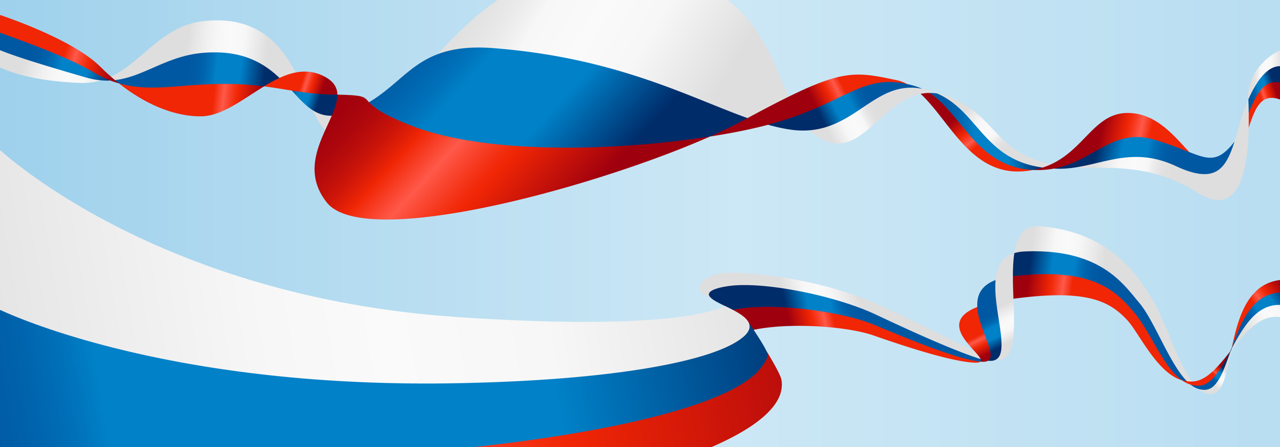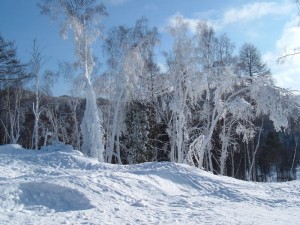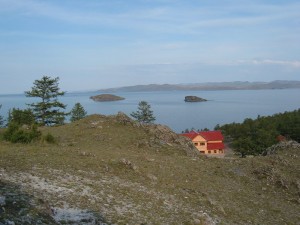Geography and Climate
The vast land that makes up the Russian nation has ultimately subordinated its people. Due to the sheer size, the nation has long struggled with other country’s invasions and attempts to dominate. The borders of the country are so massive, that any sort of border security is nearly impossible. Likewise, the location of the country itself in relationship to water is such that no opportunity exists for a merchant industry. Access to ports is difficult, thereby restricting trade potential for the nation. As a contrast to America and its borders of coastline, Russia has little ability to expand its sea trade.
Mainly, two factors shaped the make-up of the Russian state. Vikings who came in from northern (Slavic and Scandinavian lands) settled as traders made their way west. Other areas of Russia saw a spread of Asian emigration with the Mongols coming in to Moscow and taking over in 1234 and Kiev in 1240. With the infiltration of Mongols and their despotic ways, Russians became slaves. With geographic disadvantages in play, being distant from the European influences proved to benefit the Russian people. Ultimately, Russian people were able to develop and sustain the Russian Orthodox Church and this was maintained as a national church with the intent of uniting the East and the West in Christianity. However the isolation caused Russia to stay as an agricultural and uncultured nation, when the Western countries of Europe were flourishing from the Renaissance.
While the country of Russia is considered to be on the continent of Asia, a distinction is made for the Western part of Russia closest to Europe (to the west of the Ural Mountains). This portion of the giant land mass, known as Russia, is commonly referred to as “European Russia.” Because of its close proximity to Europe and because of the overall shared “European” trends and tendencies of those Russian cities nearest to Europe, Western Russia is most closely matched with Europe. However, there is no real geographic distinction between the Western and Eastern parts of the nation.
The largest country in the world, Russia covers eleven time zones, and all of the various climate zones that exist in climatology with the exception of a tropical zone. Over 75% of the country’s population resides in the portion known as “European Russia” and two of the major cities, St. Petersburg and Moscow are located in this area. Moscow is the capital city, and is the government seat, and home to over 12 million residents. St. Petersburg is known as the ‘northern Capital’ and lies on the eastern shore of the Baltic Sea. It has a population of just fewer than 5 million people. The city was named for the Saint Peter, not for Peter the Great, even though he was the founder of the city. From 1924-1991, St. Petersburg was known as Leningrad, named for the Bolshevik leader Vladimir Lenin. St. Isaac’s Cathedral and the Mariinsky Theater are located in St. Petersburg.
Harsh climate in Russia has contributed to the steadfast nature of its people and their endurance and strength. Because of the sheer distance of most Russian cities from any sea, and because of the mountain ranges in the south, Russia has primarily a continental climate. Mountain ranges block any sort of moderate or tropical weather that would present from the Indian or Pacific Oceans. Conversely, the northern (Siberian) areas of Russia do not have such topographical features to protect its land areas from the harsh wind and temperatures coming off the North Atlantic. The average temperatures in these places barely make it to the freezing mark. Typically, the seasons described in the Russian nation are only summer and winter. The seasons of autumn and spring make only brief appearances. And, traveling north and eastward, the climate becomes harsher, where temperatures hardly ever get above freezing.
In the northernmost areas of Russia, the winter months last longer, and because of the duration of winter, every aspect of Russian life is affected. The Russian work day is affected, as well as where and for how long people work. The climate affects everything from the type of crops grown, to where they are grown, to what kinds of buildings are constructed in various parts of the nation. In areas that see sub-zero temperatures on a longer than average basis, buildings have to be constructed of special materials to withstand the cold. Additionally, the climate affects the use of energy, the drain of heath care, and the demands on supplies and textiles. Over sixty-five percent of Russia is in a state of perma-frost, which means that the ground temperatures or soil temperatures are almost constantly at (or below) the freezing point. Siberia, famously known for its unbearable cold, has the coldest recorded temperature on record, at 72 degrees below Celsius, which equates to -98 degrees Fahrenheit. This record makes it the coldest inhabited location on the planet. With the soil in state of permafrost, there is no feasible way to sustain year round crop growth.
In some southern locations, the climate is much more moderate. To the east, coastal regions are hotter and wetter. The average temperatures rise to near 40 degrees Celsius, but the winters are harsh, nonetheless. In the southwest regions, the Black Sea provides for moderate beach like temperatures in the summer, and adequate rainfall. Likewise, in the southeast corner of the nation, the Caspian sea provides similar relief from the colder, more Arctic like temperatures of the northeast.
The distance of most locations to the ocean means that most areas do not see a large amount of rainfall during the year either. Moscow, the capital city of Russia, typically records about 27 inches of rainfall in a year. The city of Yakutsk sees an average rainfall of only about nine inches of rain per year. Just this year in 2010, the drought conditions in Russia caused the government to ban all exports of grain in order to conserve what grain crops the nation did produce. The drought this year eliminated nearly thirty percent of the country’s normal grain harvest, costing the country billions of dollars.



